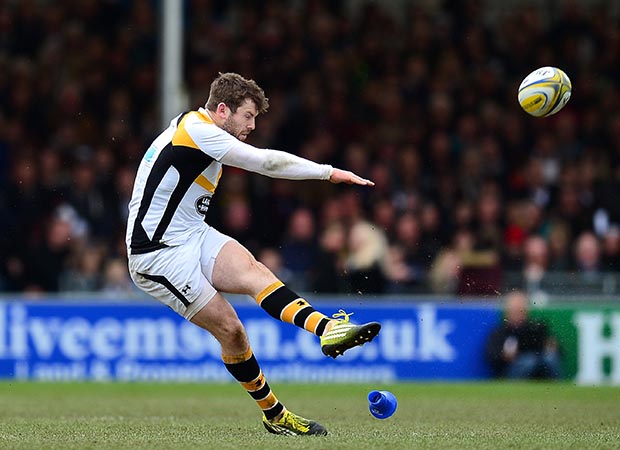 Reading Nick Cain’s article in last week’s paper, got me thinking about the Six Nations and why the committee think it is necessary to introduce bonus points?
Reading Nick Cain’s article in last week’s paper, got me thinking about the Six Nations and why the committee think it is necessary to introduce bonus points?
Nick made some salient points including ‘this is just an experiment that can be stopped if it is proven unpopular’ – but why experiment unless you feel that something is intrinsically wrong that needs changing or improving even if it does appear to be working in its present form.
I appreciate that nothing should stand still and it is beholden on the committee to look at ways to improve the competition, making it more media and public friendly – but bonus points?
Currently, a try is worth only five points, plus with the conversion another two; but tries can be scored in the far corners of the pitch making the conversion difficult. While penalties are worth three points and can be kicked from anywhere within 50 to 60 metres of the posts (by even a pretty average goal kicker) and given the number of penalties awarded within kicking distance during a game, is it any wonder that teams now try harder to get more penalties than tries?
The modern defence systems makes scoring tries harder even for the best teams, whereas getting penalties is fairly simple with referees giving them out almost like candy in most games. In the last five games of the autumn series involving England (two games), Wales, Ireland and Scotland (one game each) the referees awarded 100 penalties. With such a high number, no wonder teams prefer to have a good long range kicker than a runner with vision.
As the years have passed the technology surrounding the game has improved, so even if the players are no different, the pitch, the ball and even the kit they wear is. Consider the old leather balls that weighed a ton when wet, muddy pitches and baggy cotton shirts –all have been replaced by new technologically better synthetic replacements, making the players’ job much easier.
Composite pitches like Twickenham provide a perfect playing and kicking surface whatever the weather, while the stadium itself protects against the wind. Add in lighter balls with synthetic coatings and kicking tees and you have a recipe for long range goal kicking that virtually anyone can achieve.
Back in 1986, Paul Thorburn became a legend for what at the time was thought an impossible kick in the game against Scotland when he landed a penalty from his own 10-yard line, something that Elliot Daly does virtually every week for Wasps.
Unfortunately the game has not kept pace with the technology. If it had, rather than having a bonus point system, the powers that be would have looked to restrict the distance from which you can kick for points.
If kicks for goal were restricted to within the 22-metre line all other penalties would have to either be run or kicked to touch, where from the resulting lineout they would be passed through the hands in an effort to score a try.
Another way to ensure that teams make the effort to score tries – if tries are what the committee think are important in attracting new supporters to the game – is to make a try worth at least four times the points’ value of any other score.
More running rugby from set pieces may also help with another problem Nick highlighted: people leaving their seats during the game. Whether it’s a toilet or a bar visit, there can be only one reason that people are doing it so regularly as to annoy those sitting around them and that is, unless they have weak bladder syndrome, a lack of interest in the game.
A lack of interest because either the game lacks excitement to keep them on the edge of their seat with a series of pick and go’s that result in multiple phases that gain no more than a matter of inches, or tickets sold to fans who have little or no knowledge of the complexities of the game and prefer to get drunk. In my opinion, if they are spending nearly £100 a ticket and don’t want to watch the game, annoying though it may be, it’s up to them.
With all the good news last week, England’s win and Steve Borthwick‘s addition to the Lions coaching squad; it would have been easy to miss some sad and grave news.
London Welsh are entering voluntary liquidation in attempt to stave off bankruptcy and eventual dissolution.
They are not the first, nor will they be the last club to find themselves balanced on the edge of oblivion as a result of the unfair way that our game is financed by the RFU.
The disparity between the monies that are given to the Premiership and the rest of the game has created a gulf that is virtually impossible to bridge and as ambitious clubs try they run the risk of over-stretching themselves.
For those of us who remember the great days of London Welsh and the many great players they brought to the game, it is a sad day.
For all other Championship clubs it’s a salutary lesson, make sure you have your finances in place before trying to push for the Premiership.




















